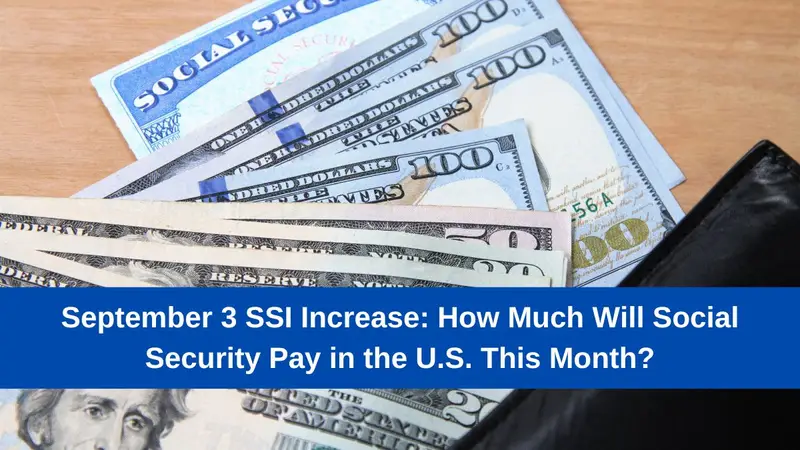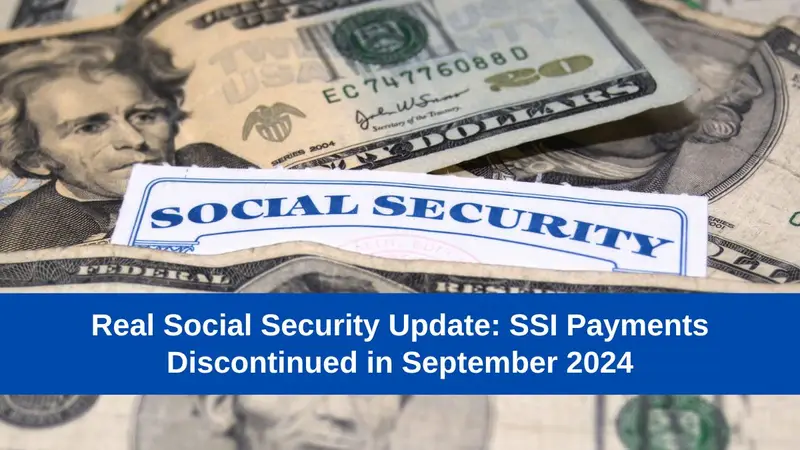If the current financial situation of the Social Security system does not improve, retirees could see their paychecks reduced by $500 a month by 2033. Experts have long warned that the Social Security system could run out of funds by the mid-2030s, leading to significantly smaller payments for beneficiaries.
With the growing number of baby boomers retiring and fewer younger workers contributing to the system, the Social Security Administration has been grappling with financial challenges for years. According to a report released earlier this year by the trustees, Social Security benefits for all Americans are expected to decrease by 21% in 2033 due to ongoing funding issues.
Retirees’ Paychecks Could Drop by Over $400 on This Date
A recent study by Motley Fool highlighted the potential impact of these cuts. Assuming a cost-of-living adjustment (COLA) of 2.6%—based on the average COLA over the past 20 years—and considering the current average Social Security payment of $1,918.28 for retired workers, the average payment in 2033 should be $2,416.79.
However, a 21% reduction would result in a monthly decrease of $507.53, meaning retirees would lose about $6,090 annually. Kevin Thompson, founder and CEO of 9i Capital Group, cautions that if no changes are made, the current system will likely result in smaller paychecks, particularly for those on fixed incomes.

The Center on Budget and Policy Priorities, an independent research organization, noted that Social Security has been crucial in assisting Americans with disabilities during their retirement years since its establishment in 1935.
In 2022, Social Security benefits kept nearly 22.7 million people out of poverty, including 16.5 million seniors. While there are few politically acceptable solutions, lawmakers have proposed several options to address Social Security’s budgetary issues. Republicans have suggested raising the full retirement age, while Democrats have advocated for increasing taxes on the wealthiest Americans.
Cutting Retirees’ Paychecks Could Be Political Suicide
Given how voters would likely react, Thompson believes it is highly unlikely that either political party would allow the anticipated cuts to retirees’ paychecks to proceed. He emphasized that allowing such cuts could be disastrous for any administration seeking to maintain control of Congress or the White House, as it would be a lasting stain on their record.
Alex Beene, a financial literacy instructor at the University of Tennessee at Martin, echoed this sentiment, predicting that more government funding would be considered before any lawmaker would approve cuts to the benefits that millions of seniors rely on to survive.
Beene argued that it would be political suicide for any party to permit large reductions in payments to seniors while in office.
Despite financial data suggesting that cuts may be necessary, lawmakers are likely to ensure that Social Security remains fully funded and that benefits are increased in the future—even if it means creating additional funding to achieve this.

One proposal to avoid jeopardizing Social Security beneficiaries is to raise the Social Security taxation cap, currently set at $168,600. This means that any income above this threshold is not subject to Social Security taxes.
Thompson suggested that increasing this cap would boost tax revenue, enhancing the sustainability of retirees’ paychecks and overall Social Security benefits. The sustainability of the system at higher income levels would determine how much the cap could be raised.
Conclusion
As the Social Security system faces looming financial challenges, the possibility of significant cuts to retirees’ paychecks is becoming a pressing concern. While the potential losses are alarming, political pressure and proposed solutions, such as raising the taxation cap, may help protect the future of Social Security benefits and ensure that retirees can maintain their standard of living.
Q1. What is the projected reduction in retirees’ paychecks by 2033?
A. Retirees could see their paychecks reduced by $500 a month by 2033 if the Social Security system’s financial situation does not improve.
Q2. How much could retirees lose annually due to these cuts?
A. Retirees could lose approximately $6,090 annually, with monthly payments potentially decreasing by over $400.
Q3. What factors are contributing to the potential cuts in Social Security benefits?
A. The growing number of retirees, fewer younger workers contributing to the system, and ongoing financial difficulties within the Social Security Administration are key factors.
Q4. What are some proposed solutions to address the Social Security funding issue?
A. Proposed solutions include raising the full retirement age, increasing taxes on the wealthiest Americans, and raising the Social Security taxation cap.
Q5. Why would cutting retirees’ paychecks be politically risky?
A. Allowing such cuts could be seen as political suicide, as it would likely alienate a large portion of the electorate, especially seniors who rely on Social Security benefits.















